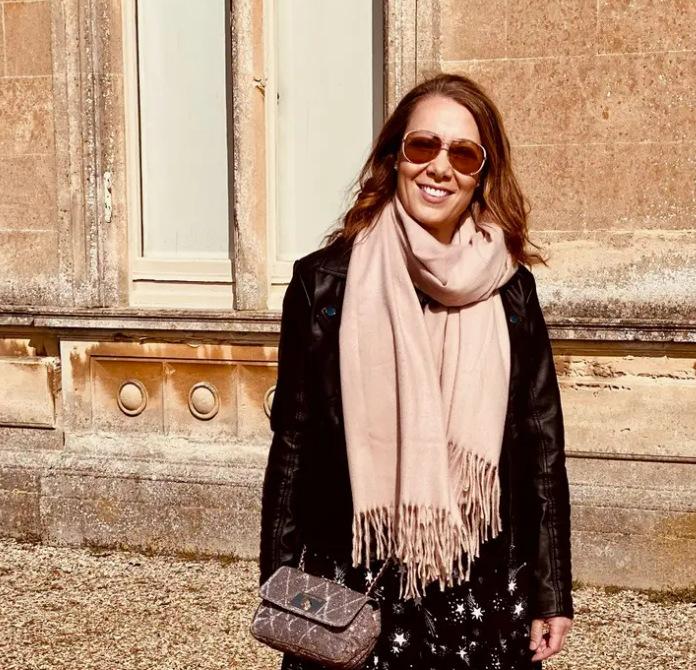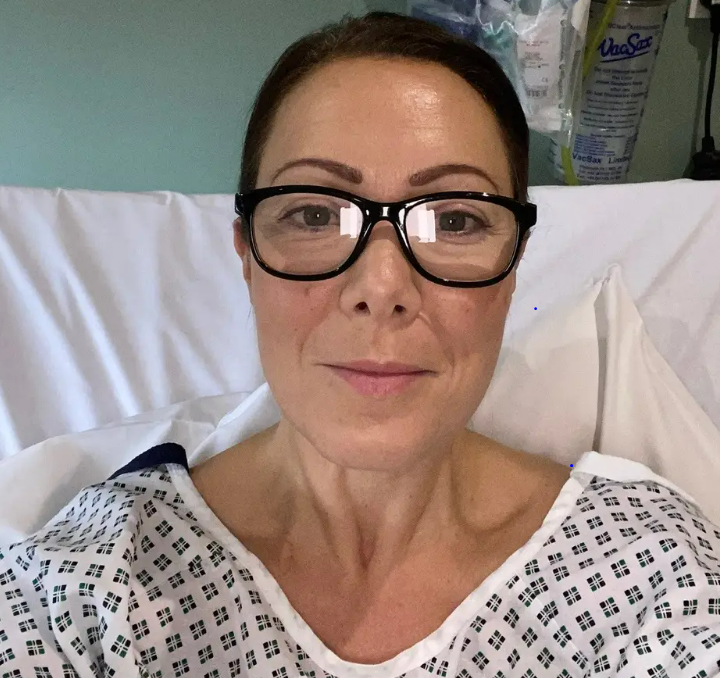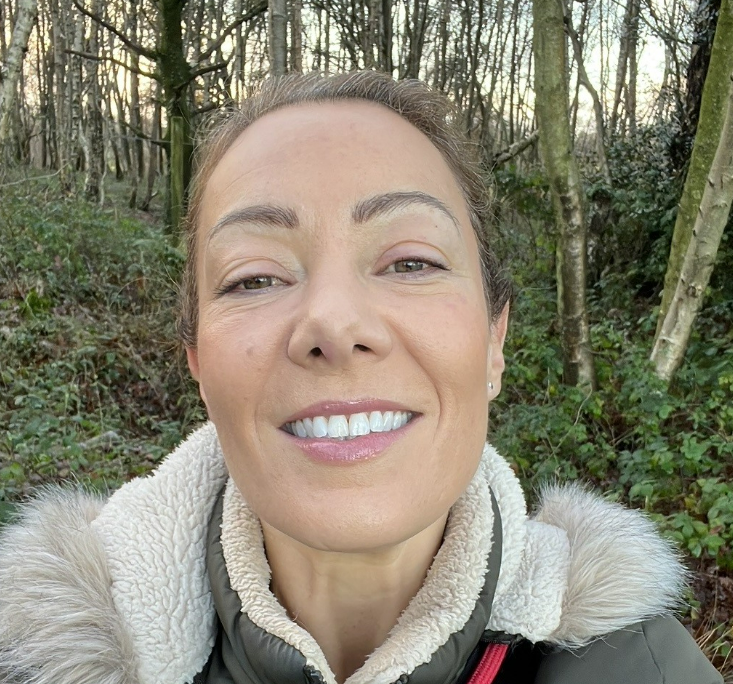
A mother-of-one who endured more than 100 cycles of cancer treatment and overcame life-threatening sepsis has had her confidence “restored” thanks to an areola tattoo she won in a competition after a skin-sparing mastectomy caused one of her nipples to lose all colour.
Helen Laws, 50, who lives in Chandler’s Ford, Hampshire, with her son and husband, who she wishes to remain unnamed, discovered a lump on her breast in 2011, which was dismissed by her GP but was diagnosed as cancer two months later when Helen asked for a second opinion.
The secondary school science technician always put her treatment first but finally decided, once her treatment became part of her routine, to have her nipple tattooed.
Having also had secondary cancer removed from her lung, Helen said her illnesses have made her “appreciate the fragility of life”, and she has accepted she will never ring the cancer bell at the ward where she receives treatment – as she knows the disease will never be in full remission.
“I did (the tattoo) for me, I really felt like part of me was missing before,” Helen added.
In October 2022, Helen’s permanent make-up artist, at Tracie Giles London, who previously tattooed her eyebrows after she lost her eyebrow hairs in chemotherapy, announced a competition where Lounge Underwear would pay for someone to have 3D areola tattooing.
Helen entered the competition and was elated when she learned she had won.
“I’ve never won anything in my life, and I was just amazed to get the call,” she said.
“They colour-matched my nipple to the normal one, and it looks so realistic.
“It’s been hugely positive and restored my confidence.
“I now feel more symmetrical, balanced and comfortable in my skin. I’m just really thrilled.
“But the funny thing is, because of the surgery I’ve had, the nipple area is completely numb, so I couldn’t even feel the tattoo!”
Helen hopes that eventually there will be more awareness about areola tattooing to help other breast cancer patients improve their self-esteem.

She said: “The fact that I did not properly explore this until eight years post-mastectomy highlights the need for increased awareness of these types of aesthetic treatments for people who are undergoing or have undergone breast surgery or reconstructions.”
In 2011, at the age of 38, Helen found a lump on her breast and, to her surprise, was told by a GP she had nothing to worry about, but she could not shake the feeling that something was wrong.
She eventually asked for a second opinion in August the same year and was diagnosed with grade three left-sided breast cancer after being referred to a specialist.
She said: “I was in shock because there’s no one with breast cancer in my family.”
On November 3 2011, Helen began treatment which, little did she know, is likely to last for the rest of her life.
Helen had a wide local excision and 19 of her lymph nodes under her arm removed, as well as 20 sessions of radiotherapy and chemotherapy.
She said: “I lost my hair but I think, worse than that, you lose your eyebrows and eyelashes and look a bit alien-like, which isn’t very pleasant.”
Then, out of the blue, on March 3 2012, when Helen was at home, her temperature suddenly spiked to 41C.

She was rushed into A&E and was quickly transferred into critical care, where it was revealed that she had contracted sepsis from a Hickman line infection and pneumonia.
Helen explained: “That was probably the low point because my husband was told I would probably not make it through the night.
“I still have flashbacks, and it was very traumatic.”
After a week in hospital, Helen made a recovery and continued her radiotherapy.
But, to Helen and her family’s devastation, in 2014 the cancer returned to her left breast, and she underwent a skin-sparing mastectomy and immediate breast reconstruction.
The NHS describes a skin-sparing mastectomy as being where “all of the breast tissue is removed, including the nipple, but most of the skin covering the breast is left”.
Helen said: “My gut reaction at the time was I wanted both removed.

“But I’m glad and fortunate that I didn’t make that decision for the ease of dressing, and nobody knows that I’ve had the surgery when I go on holiday in a bikini.”
Helen was advised against a double mastectomy as she was told her cancer was likely to return despite there being no breast tissue in the area.
She said: “I thought if they removed both breasts, it would remove the risk. But that was not the case for me.
“I had to deal with that news, but at the end of the day, you have to listen to the medical professional.”
In early 2015, Helen had nipple reconstruction using a skin graft from her back, but it left scarring to her reconstructed areola, with no colour on the nipple and no feeling in her breast.
She said: “I’d always thought I might have that tattooed at some point.
“But at the end of the day, the treatment took priority, and I just kept putting it on hold.”
Later that year, Helen’s cancer returned in the lower part of her reconstructed left breast, meaning she had to have yet another six cycles of chemotherapy.
In 2016, she had another recurrence, so she had more surgery to remove the affected tissue and 90 cycles of targeted cancer treatment.
Despite the amount of treatment, she was then diagnosed with secondary breast cancer in her right lung in 2020.
She said: “I had about an orange-sized section of my lung removed.
“It was fairly unpleasant and uncomfortable because the lung is accessed through your ribs in the VATS surgery.”
She returned to work in 2021 and is now on a long-term treatment targeting her cancer, and receives treatment once every four weeks.
Helen’s treatment has become part of her routine, and she says: “On a day-to-day basis, I think you just have to get on with it.
“Treatment is very much built into my lifestyle and life carries on as normal.”
But she still has her down days, adding: “Today I walked into the cancer unit, and they had installed a bell for people to ring to signify the end of their treatment. I got upset because I know I will never ring that bell for that reason.
“I think your whole outlook on life changes, and you appreciate the fragility of life, and you really learn to focus on what’s important.”
For support, visit www.cancerresearchuk.org/about-cancer/breast-cancer







